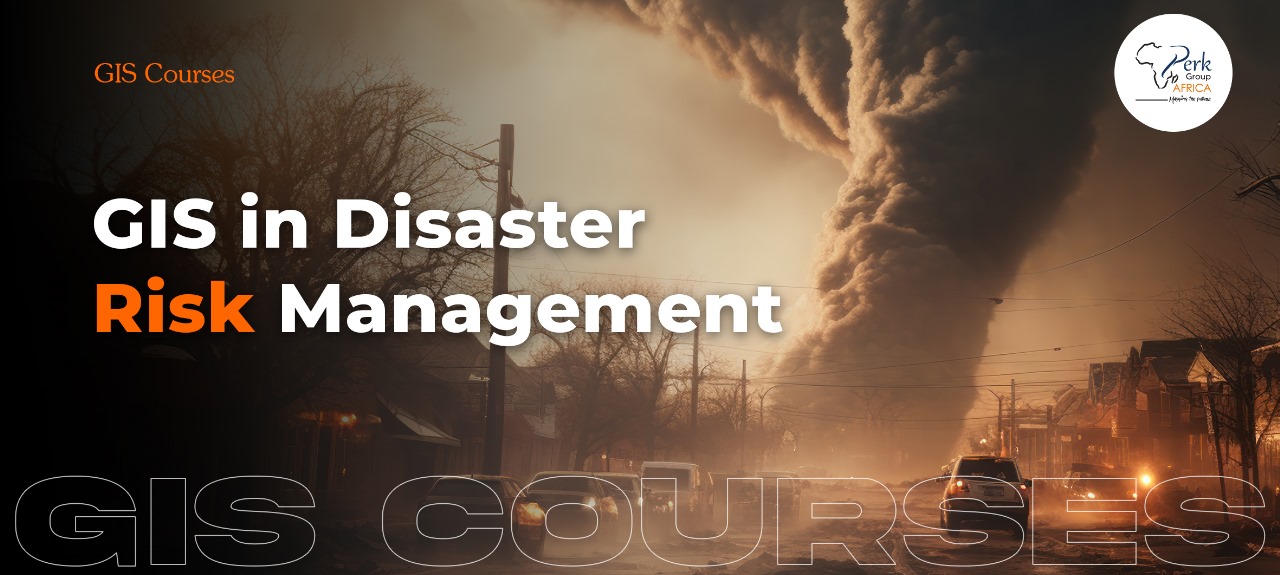
Training Course on GIS in Disaster Risk Management
Course Overview
This GIS in Disaster Risk Management course will equip participants with the knowledge of the use of Geographic Information Systems (GIS) in managing and mitigating disaster risks. This course is designed for professionals and practitioners involved in disaster management, emergency response, and resilience planning who want to leverage GIS technology to enhance their decision-making processes and improve disaster preparedness.
Through practical examples and hands-on exercises, participants will learn how GIS can assist in analyzing and visualizing spatial data to identify and assess hazards, vulnerabilities, and risks. They will acquire the skills to develop and implement GIS-based disaster management strategies, including spatial modeling, risk mapping, and scenario planning.
Course Duration:
Online Training: 7 days
Classroom Training: 5 days
Course Outline
Module 1: Introduction to GIS in Disaster Risk Management
- Understanding the Role of GIS in disaster risk management
- Overview of key concepts and Principles in disaster risk reduction
- Introduction to GIS software and tools for disaster risk management
- Introduction to spatial data types and Sources for disaster risk analysis
Module 2: Data Collection and Management for Disaster Risk Management
- Methods and Techniques for collecting spatial data in disaster risk management
- Data quality assurance and management
- Georeferencing and spatial data integration
- Introduction to disaster risk data standards and interoperability
Module 3: Hazard Assessment and Risk Mapping
- Identifying and assessing different types of hazards
- Spatial analysis techniques for hazard mapping and vulnerability assessment
- Developing risk maps and impact assessments using GIS
- Integration of hazard data with demographic and infrastructure data
Module 4: Emergency Response and Preparedness
- Role of GIS in emergency Response and decision-making
- Spatial analysis for evacuation planning and route optimization
- Real-time data integration and visualization for situational awareness
- Creating decision support systems for emergency operations centers
Module 5: Resilience Planning and Post-Disaster Recovery
- GIS applications in resilience planning and adaptive management
- Spatial analysis for identifying vulnerable areas and prioritizing interventions
- Assessing the effectiveness of disaster risk reduction measures using GIS
- Case Studies and best practices in GIS for disaster risk management
Note: This outline provides a general structure for a 5-day training program on GIS in Disaster Risk Management. The specific content, activities, and duration of each session may be adjusted based on the target audience, learning objectives, and available time.
Classroom Training Schedule
| Start Date | End Date | Location | Cost | Apply |
|---|---|---|---|---|
| Mar 02, 2026 | Mar 06, 2026 | Nairobi | $ 1200 | Register |
| Apr 06, 2026 | Apr 10, 2026 | Nairobi | $ 1200 | Register |
| May 11, 2026 | May 15, 2026 | Nairobi | $ 1200 | Register |
| Jun 15, 2026 | Jun 19, 2026 | Nairobi | $ 1200 | Register |
| Jul 20, 2026 | Jul 24, 2026 | Nairobi | $ 1200 | Register |
| Aug 24, 2026 | Aug 28, 2026 | Nairobi | $ 1200 | Register |
| Sep 28, 2026 | Oct 02, 2026 | Nairobi | $ 1200 | Register |
| Nov 02, 2026 | Nov 06, 2026 | Nairobi | $ 1200 | Register |
| Dec 07, 2026 | Dec 11, 2026 | Nairobi | $ 1200 | Register |
Virtual Training Schedule
| Start Date | End Date | Location | Cost | Apply | |||
|---|---|---|---|---|---|---|---|
| Mar 16, 2026 | Mar 24, 2026 | Online | $ 800 | Register | |||
| May 25, 2026 | Jun 02, 2026 | Online | $ 800 | Register | |||
| Aug 03, 2026 | Aug 11, 2026 | Online | $ 800 | Register | |||
| Oct 12, 2026 | Oct 20, 2026 | Online | $ 800 | Register | |||
| Dec 07, 2026 | Dec 15, 2026 | Online | $ 800 | Register |
Course Language
This Training course is offered in ENGLISH . Please indicate the language of choice during registration.
Course Delivery
Presentations are well guided, practical exercise, a plenary presentation, and group work. Participants are encouraged to bring any data relevant to their job responsibilities. This is hands-on, product-oriented training and will mostly involve practical exercises. Each participant MUST bring along their own working laptop and android phone.
Certification
Upon completion of training, the participant will be issued with a certificate of Completion.
Tailor-Made Course
3 months post-training support, consultation, and coaching is a guarantee from us and will be available after the course.We can also do this as a tailor-made course to meet organization-wide needs. Contact us to find out more: training@perk-gafrica.com.
